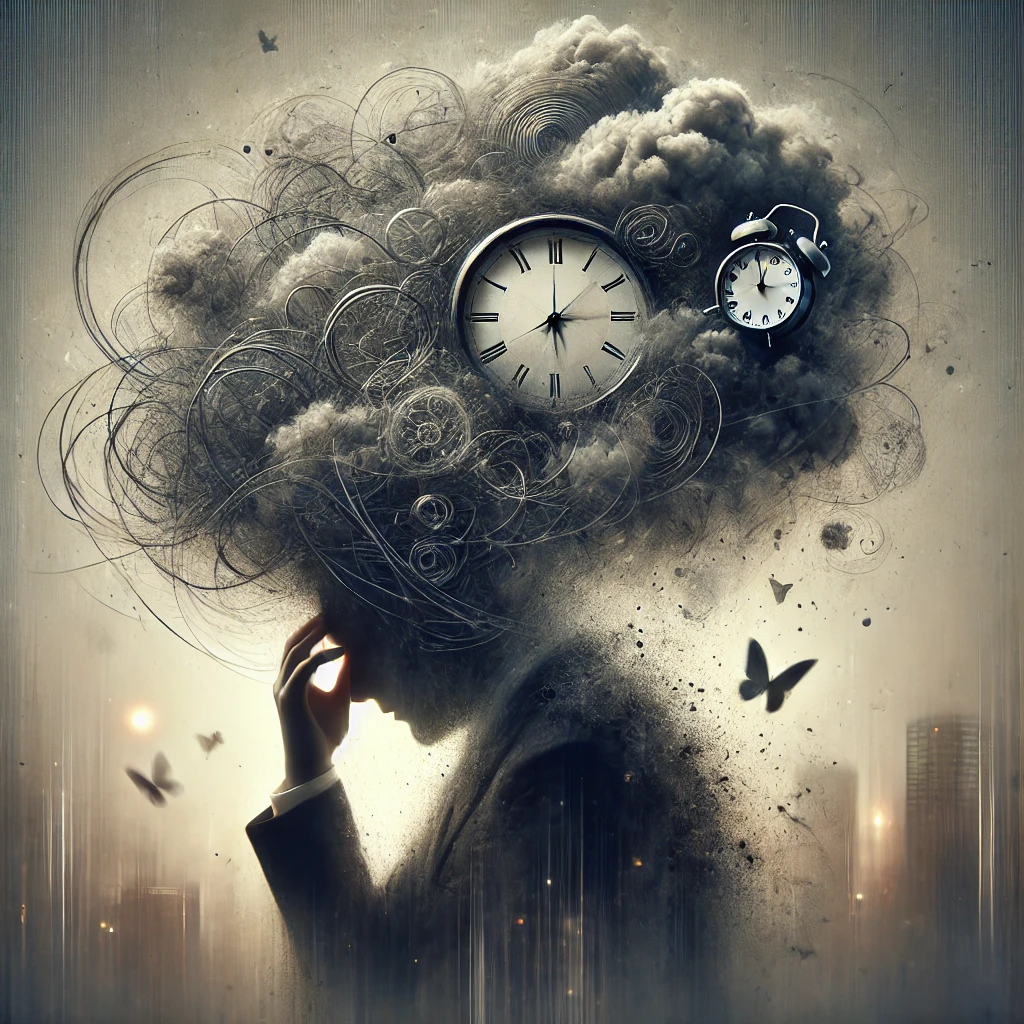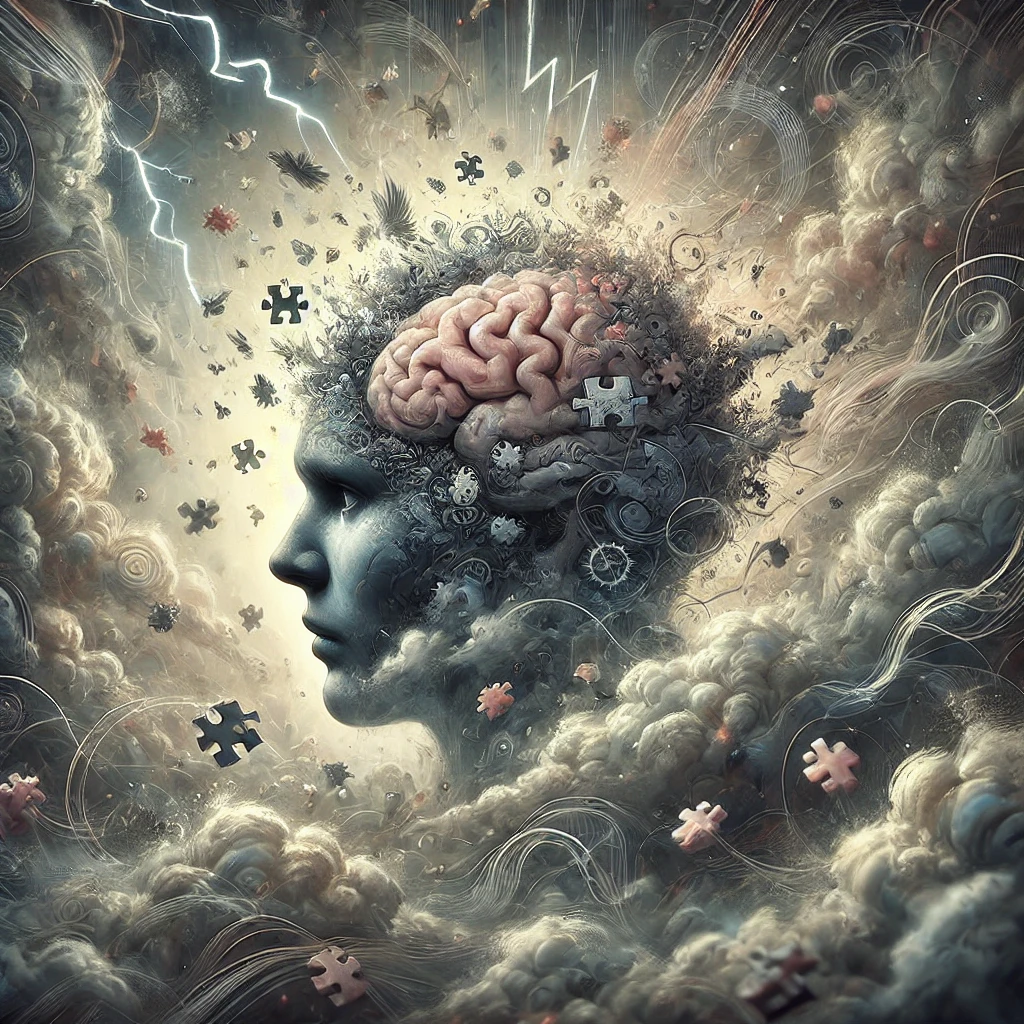Purpose of This Article
The purpose of this article is to explore and understand a lesser-discussed yet deeply unsettling anxiety symptom: photophobia, or heightened sensitivity to light. We’ll unpack why this happens in the context of chronic stress and persistent activation of the body’s threat-response system. If you’ve found yourself squinting indoors, shielding your eyes in moderate sunlight, or feeling overwhelmed by screens and artificial lighting, this article aims to shed light on this experience and offer both reassurance and clarity.
When the nervous system stays on high alert for long stretches of time, as it often does in individuals experiencing chronic anxiety, the body becomes overly reactive— not just emotionally, but physically and neurologically. One such physical reaction that can be confusing and even frightening is increased sensitivity to light.
This isn’t “just in your head,” and it isn’t a sign that something is deeply wrong with your eyes or brain. While it can mimic or overlap with symptoms of neurological conditions, migraines, or even visual disturbances associated with eye disease, in many anxiety sufferers this is a response rooted in the body’s protective mechanisms running on overdrive.
It’s perfectly understandable to worry when light starts to feel too bright, too sharp, or even painful. The eyes are intimately connected to the brain and the nervous system, so when your brain is flooded with stress hormones and the sympathetic nervous system is in a chronic state of alertness, even seemingly simple inputs—like light—can become overwhelming. This article will help you understand why that happens, what it feels like, and why you’re not alone or broken for experiencing it.
How Does Light Sensitivity Feel?
- Eyes feel easily overwhelmed by brightness – even regular indoor lights might feel glaring or invasive. Overhead lights can feel especially irritating or too intense.
- Sunlight feels harsh – going outside can feel like entering a space that’s too white or washed out. You might find yourself reaching for sunglasses even on cloudy days.
- Screens become intolerable – the light from phone screens, computer monitors, or TVs may feel piercing or overly vivid, causing squinting or a need to dim them excessively.
- A constant need to squint – as if your eyes are trying to filter out some of the excessive brightness, even if the lighting around you hasn’t changed.
- A sense of “eye fatigue” – eyes may feel strained, tired, or even painful after short periods of visual activity, especially when exposed to fluctuating or bright light sources.
- A feeling of disorientation – bright lights can make it harder to focus or concentrate. Some people describe feeling dizzy or spacey when entering brightly lit environments.
- A “burning” or “aching” sensation in the eyes – this can be mild or intense, and may come with feelings of dryness or excessive watering.
- Overwhelm in busy visual environments – places with fluorescent lighting, reflections, or lots of visual stimuli may feel mentally and physically exhausting.
- A heightened awareness of lighting conditions – constantly noticing if a room is too bright, too dim, or if light is reflecting off surfaces in a certain way.
- A tendency to avoid certain lighting altogether – sufferers may rearrange furniture, wear sunglasses indoors, or prefer to stay in dimly lit environments for comfort.
- Light sensitivity that comes and goes unpredictably – it may be worse during high-anxiety periods and lessen during calmer times, adding to the confusion.
- Fear that it’s something serious – because light sensitivity is also linked to migraines, eye conditions, and even neurological disorders, many people spiral into health anxiety when this symptom emerges.
In essence, it can feel like your eyes are no longer able to tolerate the world as it is—an exhausting and deeply distressing experience. And while it’s easy to worry about this being a sign of something ominous, it’s also important to understand that this is a known and recognized part of what can happen when the body remains stuck in a prolonged state of sympathetic overdrive.
How Anxiety Causes Photophobia:
A Complex Interplay Symptom:
Photophobia linked to anxiety is not just a matter of the eyes overreacting—it represents a multi-system involvement, a kind of cascade that starts in the nervous system and ripples through ocular processing pathways, muscular tension, and sensory perception.
Primary System Involved: The Nervous System (particularly the Sympathetic Branch)
- Chronic overactivation of the Sympathetic Nervous System:
- The stress response becomes a default mode when anxiety persists long-term.
- This results in heightened startle responses and visual vigilance.
- The brain becomes locked in a hyperaware mode, keeping the eyes strained and overly alert.
- Sensory Gating Disruption:
- Normally filtered sensory input, like light, floods conscious awareness.
- Moderate brightness feels harsh due to broken filtering mechanisms.
- Heightened Cortical Excitability:
- Increased neuronal firing in the brain’s sensory regions leads to hypersensitivity.
- Visual input is exaggerated in perception, leading to discomfort.
Ocular and Muscular Contributions:
- Persistent tension in ocular muscles reduces eye adaptability to light.
- Blink reflex may become irregular or diminished, increasing eye strain and sensitivity.
Hormonal and Systemic Involvement:
- Chronic cortisol and adrenaline surges affect intraocular pressure and blood flow.
- Midbrain and thalamus disruption skews visual sensory input, increasing perceived light intensity.
Medical Advisory: What This Symptom is Often Confused With
Photophobia is often misattributed to a wide range of medical conditions. And rightfully so—light sensitivity can signal genuine physiological concerns. That’s why it’s critical to undergo a comprehensive medical evaluation before attributing this to anxiety.
Conditions commonly mistaken for anxiety-induced photophobia:
- Ophthalmic conditions:
- Dry eye syndrome
- Uveitis
- Corneal abrasions or ulcers
- Glaucoma
- Cataracts
- Retinal detachment or inflammation
- Neurological disorders:
- Migraine (especially with aura)
- Meningitis
- Post-concussion syndrome
- Intracranial hypertension
- Trigeminal neuralgia
- Systemic illnesses:
- Lupus
- Sjögren’s Syndrome
- Lyme disease
- Chronic fatigue syndrome
- Medication or substance effects:
- Side effects from antidepressants, antihistamines, or stimulants
- Withdrawal from benzodiazepines or SSRIs
- Caffeine or stimulant overuse
- Psychological or psychiatric factors:
- Sensory processing disorders
- Trauma-related dissociation or PTSD
Important Clinical Note:
If all tests—including ophthalmic, neurological, and systemic evaluations—return normal, yet the photophobia persists, it is very likely tied to the nervous system’s overstimulation due to stress and anxiety. This is when seeking support from an experienced anxiety-informed therapist becomes essential.
Symptom Summary – How Anxiety Creates This Light Sensitivity:
- Chronic stress overstimulation sustains a heightened sympathetic nervous system state.
- Visual alertness becomes intensified, treating ordinary light as a threat.
- Breakdown in sensory gating allows light to overload conscious perception.
- Ocular muscles remain tight, preventing comfortable light adaptation.
- Sensory integration centers in the brain become over-responsive.
- Blink patterns are disrupted, reducing eye protection.
- Stress hormones impact intraocular dynamics and nerve sensitivity.
Reclaiming Comfort Around Light
Photophobia triggered by anxiety is not imagined, not rare, and not a sign of something unfixable. It’s a very real physiological response to living in a state of ongoing internal tension. When the body is flooded with stress hormones and the nervous system is dialed up to eleven, the world becomes too loud, too fast—and yes, too bright.
But here’s the good news:
If medical evaluations have ruled out serious eye or brain conditions, this light sensitivity can be seen for what it is—a message from your body asking for a recalibration, a coming down from a long period of overdrive.
You’re not broken. Your nervous system is just overworked and over-alert. With the right support, it can find its balance again.
✨ If you’re living with this kind of discomfort, don’t wait in the shadows. Book a free consultation with one of our anxiety therapists—who specialize in working with symptoms just like this. They’ll help you untangle the web of anxiety-driven bodily sensations and find your path to ease, clarity, and comfort once again.


